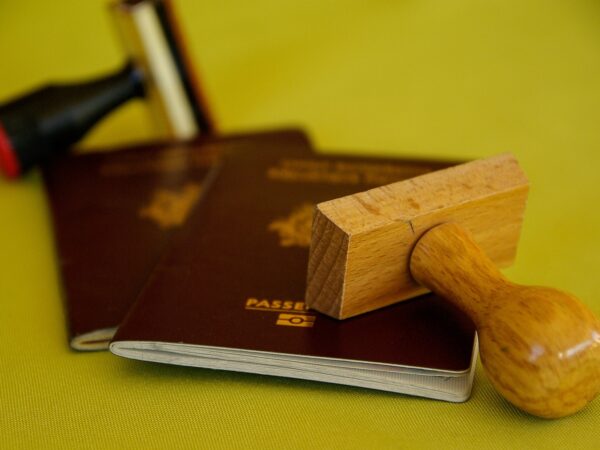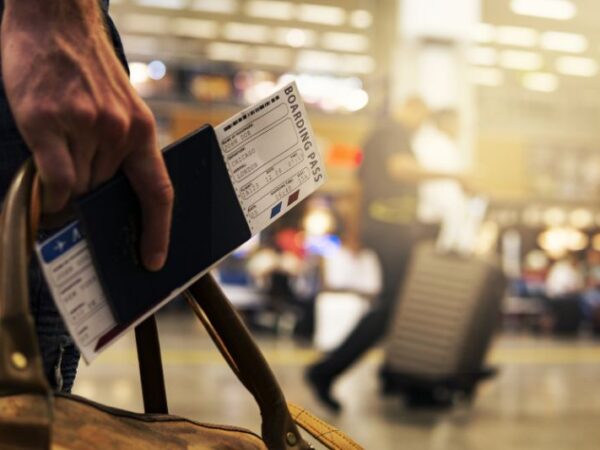Citizens of the European Union or Schengen Area countries are free to travel between and through any of the member states of both entities without the need for a visa or other documentation. The only requirement for such travellers is a valid passport.
This is not the case, however, for nationals of countries outside the EU or Schengen Zone or from countries that do not enjoy a reciprocal visa-exemption agreement with the European Union. These are termed “world travellers” and, as such, must possess the correct form of Schengen Visa to enter any Schengen Area member state. In the majority of cases, this will be a standard Schengen Tourist Visa, but there are different circumstances in which another form of visa will be required.
The list of supporting documentation that must accompany any Schengen Visa application is fairly standard, but for some, there is an additional requirement. World travellers wishing to enter the Schengen Area to visit family or friends or for study, business or employment purposes as well as medical treatment will also need to supply a letter of invitation from the persons, educational establishment, business entity or medical centre concerned.
Purpose of Invitation Letter
Every Schengen country has different rules as to who requires a letter of invitation, but the reason for such a letter remains the same. It is a means of verifying that the world traveller is arriving in the Schengen Area for a valid reason and is unlikely to abscond while within its boundaries. The letter supplies immigration officers with details of where the traveller will be staying, under whose care and how the visit will be financed.
The invitation letter should provide the following information:
- Name, address and contact details of the person, business or educational establishment issuing the invite.
- Purpose of the visit (vacation, study, work etc.)
- Dates of the visitor’s arrival into and departure from the Schengen Area.
- Details of the visitor’s accommodation plans.
- Details of any outings or trips planned, particularly those to another Schengen country.
Some countries require proof of accommodation that has been booked or, failing this, proof of sufficient funds to cover accommodation and daily expenses while in the Schengen Area. The letter is considered a guarantee that the person invited is entering the Schengen Area for valid reasons and is highly unlikely to remain illegally beyond the dates outlined in the letter. The signatory of the letter becomes a de facto sponsor and assumes responsibility for the person invited.
Personal Invite
If the purpose of visiting a Schengen member state is to visit and stay with friends or relatives, a world traveller will likely require a letter of invitation from the friend or relative in question. This person is sponsoring the visit and must supply all relevant details regarding the visitor’s stay and how the visit will be financed. If the sponsor is a relative it may also be necessary to provide documentary proof of the relationship.
The invitation letter should clearly detail:
- The relationship (if any) between the sponsor and the visitor
- Date of visitor’s arrival
- Date of visitor’s departure
- How the stay will be financed and who is paying
The sponsor assumes responsibility for the visitor and undertakes to cover any financial support that may be required, as well as guaranteeing that the visitor will leave the Schengen Area on the stated date.
A letter of invitation should be as complete and as detailed as possible as this is an important piece of supporting documentation which could well determine whether a visa is granted or not. The details contained in the letter will assure the authorities that the traveller is entering the Schengen Area for valid reasons, can be located quickly if necessary, and is unlikely to overstay the visa as this would cause problems for the sponsoring friend or relative.
Business Invite
Travelling abroad for business reasons is a common practice in the modern world, and a world traveller may require a Schengen Business Visa to carry out this activity. In many Schengen countries, a Business Visa application must be accompanied by a letter of invitation from the business that the traveller is visiting.
As with a personal invitation, the Schengen authorities require a letter of invitation to confirm that the visitor is entering the country for valid reasons, can be contacted or traced and will leave the zone on the scheduled date.
A business invitation letter must detail:
- The nature of the relationship between the company and the visitor
- Dates of arrival and departure
- Schedule of meetings, conferences and other business matters planned
- Details of any booked accommodation
- Proof of adequate finances for the trip and whether this is covered by the individual or the company
A self-employed traveller may also need to provide documentary evidence of this(company registration) or, if an employee, then a letter from the company will be required detailing the traveller’s position, salary and duration of employment.
Study Invite
World travellers wishing to study at a college, university or other recognised educational institute in a Schengen country should possess a Schengen Study Visa that is valid for the duration of the course being undertaken.
Most Schengen countries will require a Study Visa applicant to include a letter of invitation from the educational establishment concerned, and this should provide the following information:
- Name, address, email and contact details of the educational institute
- Letter of acceptance or enrolment
- Students personal details (name, address, age, gender, nationality)
- Details of course (or courses) being undertaken
- Start and end dates of the course(s)
The letter of invitation should also give details of where the student will be accommodated for the duration of the stay, how this accommodation will be paid for, and proof of payment for the course or courses.
Medical Invite
On occasion, a world traveller may have to present in a Schengen country for medical reasons. Perhaps the type of treatment or surgery required is not available in their home country or is not of a sufficiently advanced standard. Whatever the reason, such persons will require a Schengen Medical Visa, and a letter of invitation from the medical centre in question is a necessary part of the application process.
The letter of invitation must originate from the doctor, surgeon or medical expert overseeing the medical treatment and must include the following:
- Details of the patient’s medical condition
- Reasons for treatment in the Schengen country in which it will take place
- Details of the hospital or medical centre where treatment will be undergone
- Dates and schedule of proposed treatment
The invitation should also give a definite date for the end of any treatment as an open-ended time period will not be accepted by the authorities overseeing the visa application. The letter must also provide details of how and when payment for the required treatment will be made.
Sponsored Visit
Certain special, one-off events may also necessitate including a letter of invitation with a visa application. Examples of such events include:
- Visiting trade shows
- Partaking in sporting events
- Attending religious or cultural events
Similar to other letters of invitation, invite for such events must provide:
- Details of the sponsor, company or organisation running the event
- Personal details about the world traveller invited
- Start and end dates of the event
The letter must also provide details of who will be covering any costs incurred, which includes accommodation and day-to-day expenses. While an invitation letter may or may not be required for these (and other) events, it is prudent to check with the relevant embassy or consulate if this is or is not the case.
Required Information
The most common form of Schengen Visa applied for, the Tourist Visa, does not need a letter of invitation to accompany the application form, and this is also true of most forms of visa. However, when an invitation letter is required the applicant must ensure that it is sought and secured by the relevant person or authority.
The invitation letter should be written in a formal manner and include:
- Name and contact details of the person, company or institute issuing the invitation
- The inviting person’s status (citizen, resident)
- Applicant’s personal details, including name, date of birth, nationality, etc.
- Applicant’s contact details
- Applicant’s passport details
- Dates of entry into and exit from the Schengen Area
- Outline of the purpose of the visit
- Itinerary of any travel planned
The letter should be signed and dated by the person extending the invite, and any necessary supporting documentation attached. These are the basic requirements, but some Schengen countries have additional or alternate information that needs to be provided.
Before requesting a letter of invitation, it is vital to know precisely what it should contain, and this is best done by visiting the official website of the country being visited. Failure to supply all the details and information requested will delay the application process or even result in a refusal if the letter of invitation fails to meet the criteria expected.




